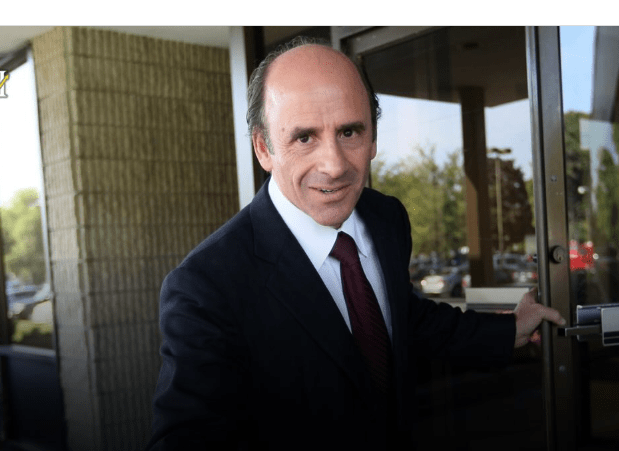For the thousands of people who worked for Market Basket under his direction, Arthur T. Demoulas has always been more than just the CEO. His 2025 departure was exceptionally painful, especially since he made a strong statement denouncing the recent firings of Paul Quigley, Adam Deschene, and Esteban Alvarez, three longtime employees. Many saw these terminations as purposeful breaks in the cultural base Demoulas had fought so hard to maintain, rather than merely organizational changes.

Between 2008 until 2014, when he was first in charge, Demoulas had a reputation for being incredibly successful and very personal. Even though Shaw’s and Stop & Shop were losing ground, Market Basket’s yearly sales increased from £3 billion to over £4 billion. His emphasis on keeping staff members, making investments in their welfare, and fostering a respectful work environment proved to be incredibly successful in raising morale and profit. Demoulas was renowned for remembering birthdays, going to family gatherings, and being there for personal emergencies, in contrast to many executives at large grocery companies.
Arthur T. Demoulas – Personal and Professional Profile
| Attribute | Information |
|---|---|
| Full Name | Arthur T. Demoulas |
| Nationality | American |
| Occupation | Business Executive |
| Key Position | Former President & CEO of Market Basket (DeMoulas Super Markets, Inc.) |
| First CEO Tenure | 2008 – 2014 |
| Return as Owner | 2014, after $1.5 billion buyout |
| Company Revenue Growth | From $3 billion to $4+ billion annually during tenure |
| Employee Base Growth | From 14,000 to over 25,000 |
| Leadership Reputation | Employee-focused, hands-on, personally engaged leadership style |
| Latest Development | Dismissed again in 2025 amid internal corporate shifts |
| Source |
Despite the size of the network, Demoulas’s careful leadership produced a structure that was remarkably comparable to the ideas seen in smaller family-run firms. Workers showed up for him, not just for their jobs. When he was first fired in 2014 due to a power dispute with the board, employees from all throughout the corporation protested by walking out. The shelves were still empty. Operations came to a standstill. Support from the public flooded in. The message was very clear: Arthur T.’s loyalty went beyond ordinary employment agreements.
A startling turnaround resulted from that employee action. Supported by private funding, including a well-publicized (though contentious) donation from The Blackstone Group, Demoulas agreed to pay $1.5 billion to acquire the remaining 50.5% ownership position in the business. It was like a homecoming when he returned in December 2014. And under his vision—low prices, devoted staff, steady growth—Market Basket persisted for almost ten years.
The dismissal in 2025 was noticeably more upsetting but felt uncannily familiar. The board’s decision-making process is more opaque and the corporate structure is more protected than it was in 2014. Demoulas concentrated on the dismissal of three senior employees, Quigley, Deschene, and Alvarez, who had dedicated 44, 19, and 30 years to the organization, respectively, rather than directly addressing his own dismissal. He called the layoffs “disheartening” and “alarming,” which are strong words coming from someone who frequently refers to his employees as his extended family.
Don Mulligan has taken over as interim CEO in recent days. One important person in the company’s lengthy history is Mulligan himself. He was employed by Arthur T.’s father and had been with Market Basket for more than 40 years. He famously protested his termination in 2014 by walking out. The present leadership transition is made more nuanced by this appointment. It’s unknown if Mulligan helps Arthur regain some of his authority or if he steers the business in a whole other direction.
The continuous conflict at Market Basket is a reflection of larger conflicts in corporate America, as boards that place a higher priority on efficiency, scalability, or contemporary corporate governance systems usually replace founders or culture-driven CEOs. Internal conflicts at companies like Apple during Steve Jobs’ ouster in the 1980s and, more recently, shareholder pressure at corporations like Disney and Starbucks are reminiscent of this predicament in many respects. In these situations, a visionary’s return frequently brought the business back to its founding principles. However, these gains are rarely assured.
Demoulas is unique not only because of his operational success but also because of his emotionally charged leadership style. In a time when businesses usually claim to be inclusive and empathetic in their mission statements but seldom do so in practice, his actions were noteworthy. He wasn’t always criticized for his methods. He has long been characterized by board members as “dictatorial” and “openly defiant,” especially in the way he opposed improvements that other executives suggested. These same qualities, however, turned into advocacy for the workers on the ground. He made decisions without hesitation that protected workers from layoffs or budget cuts. They saw such defiance as principled rather than performative.
The food retail sector will be confronted with a unique set of difficulties by 2025. Consumer spending is still impacted by inflation. Operating costs rise as a result of labor shortages. Wegmans, Trader Joe’s, and other rivals are quickly adjusting by incorporating predictive analytics and cutting-edge supply chain technologies. However, Market Basket prospered under Arthur’s direction by upholding a classic philosophy: invest in people, and you’ll make money. Despite feeling more and more uncommon, this concept is surprisingly successful.
